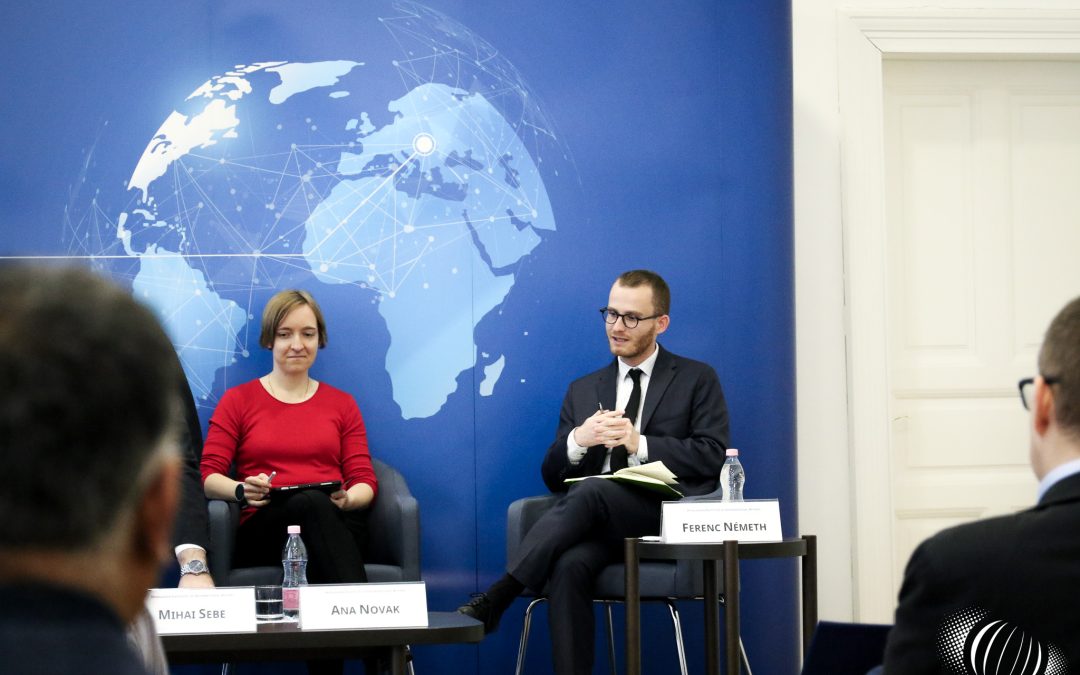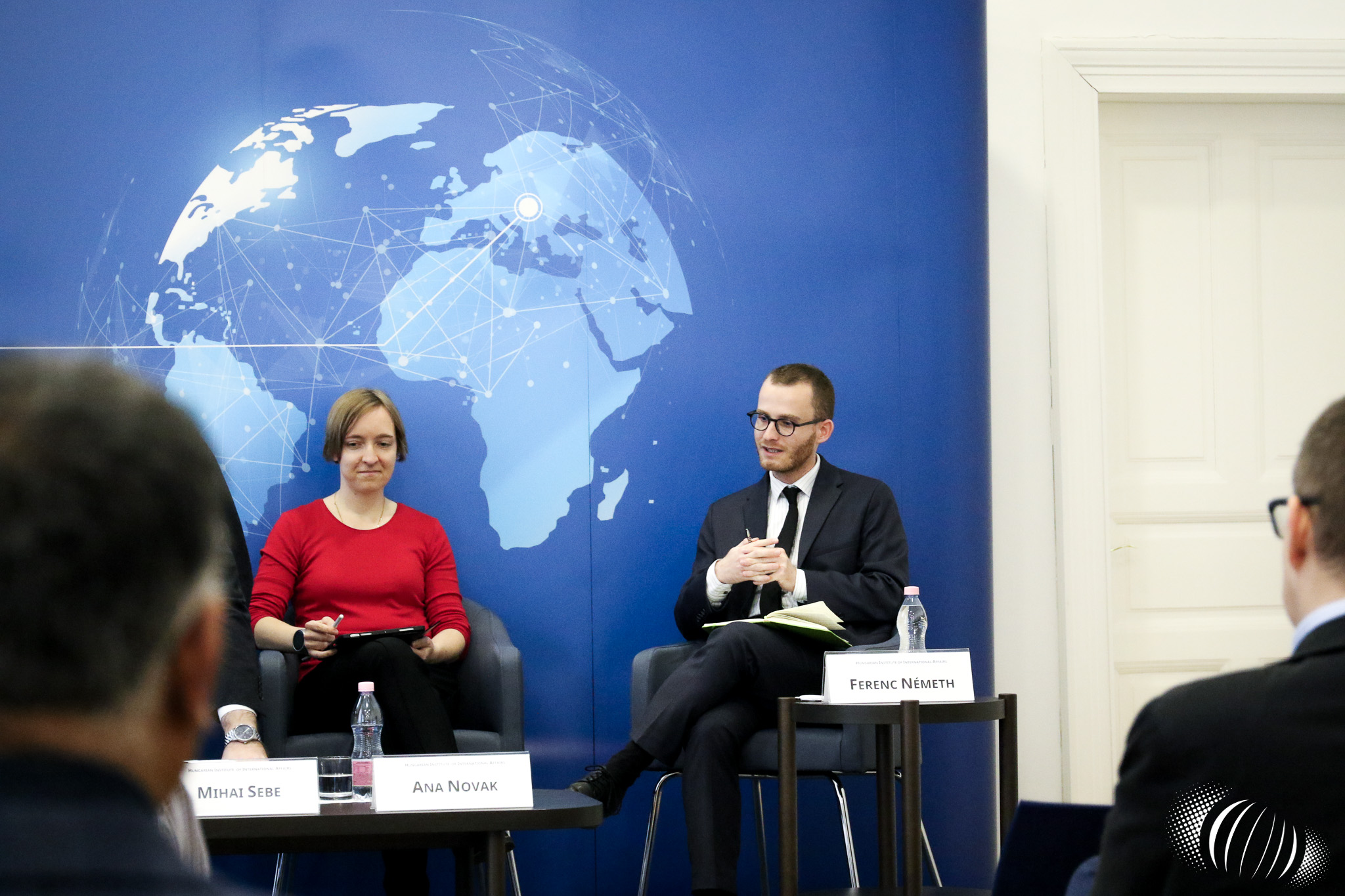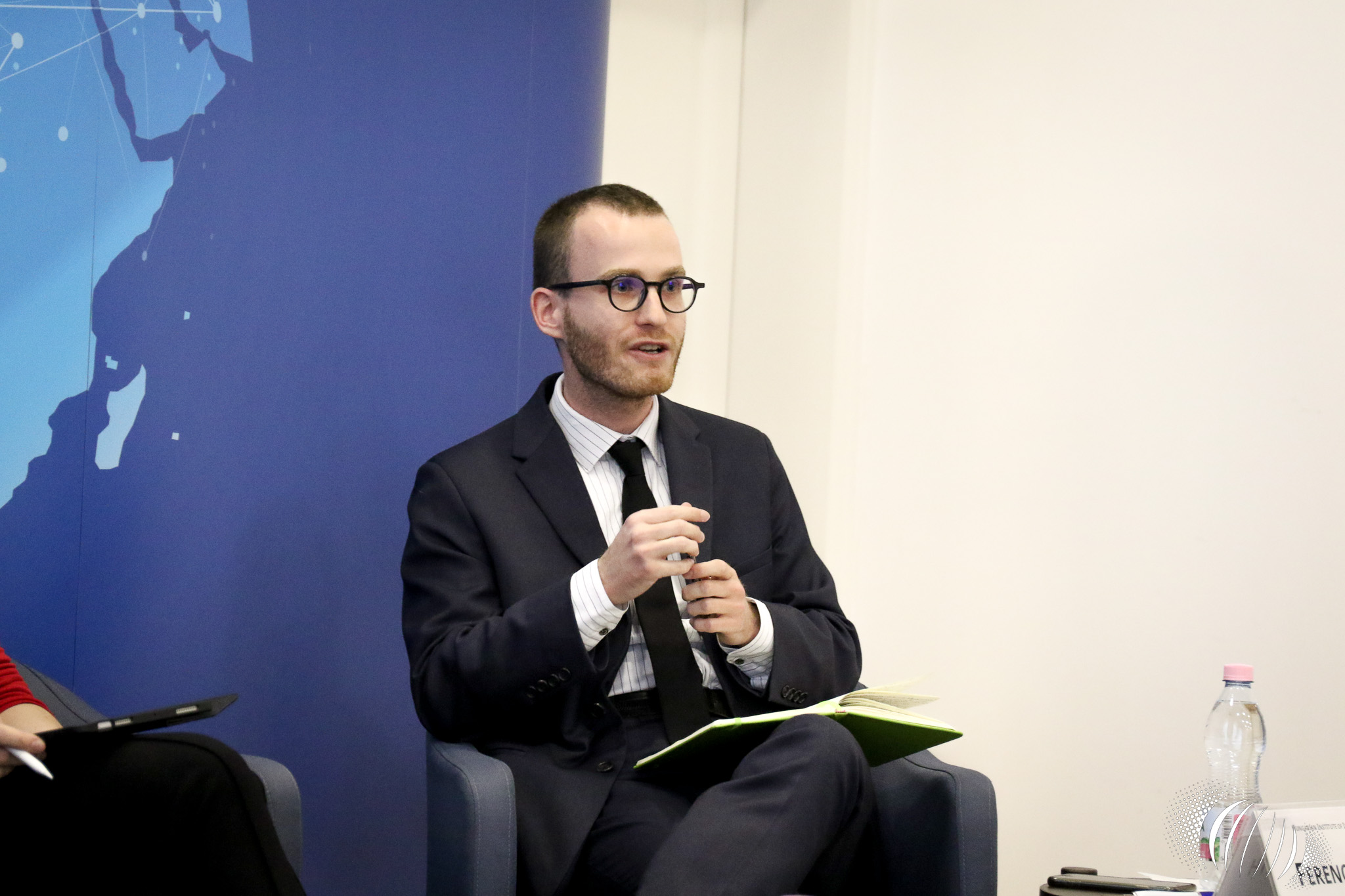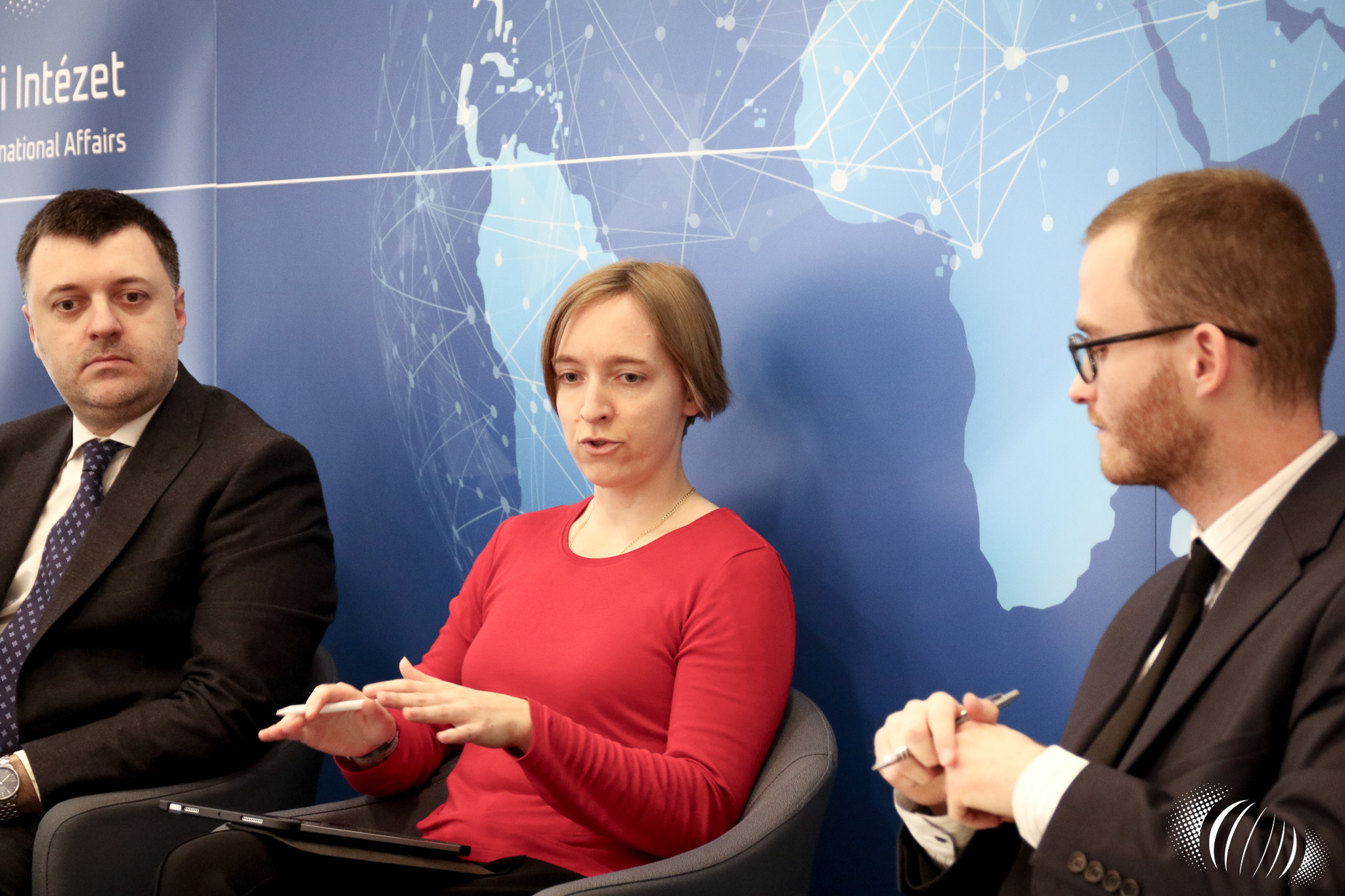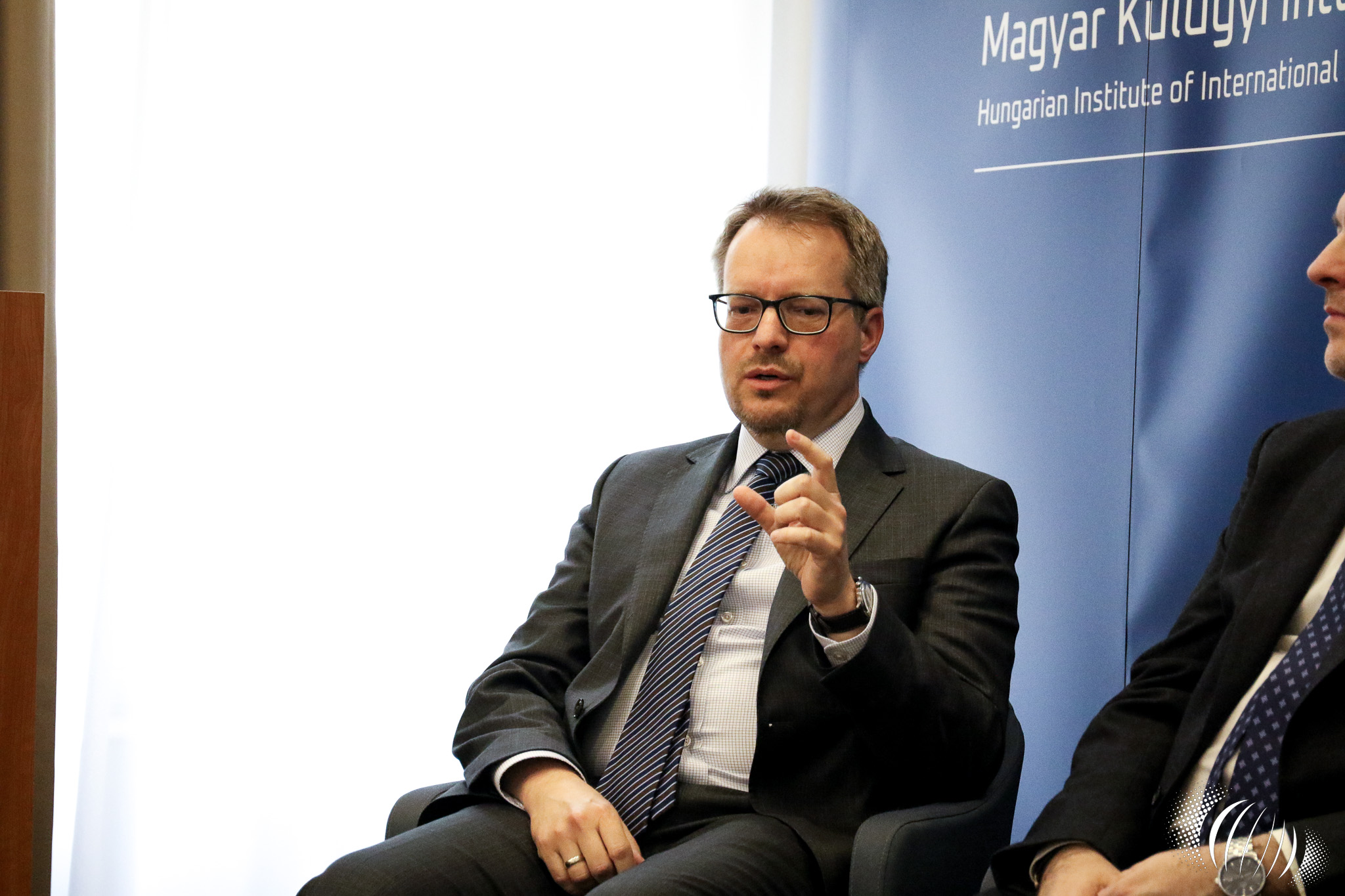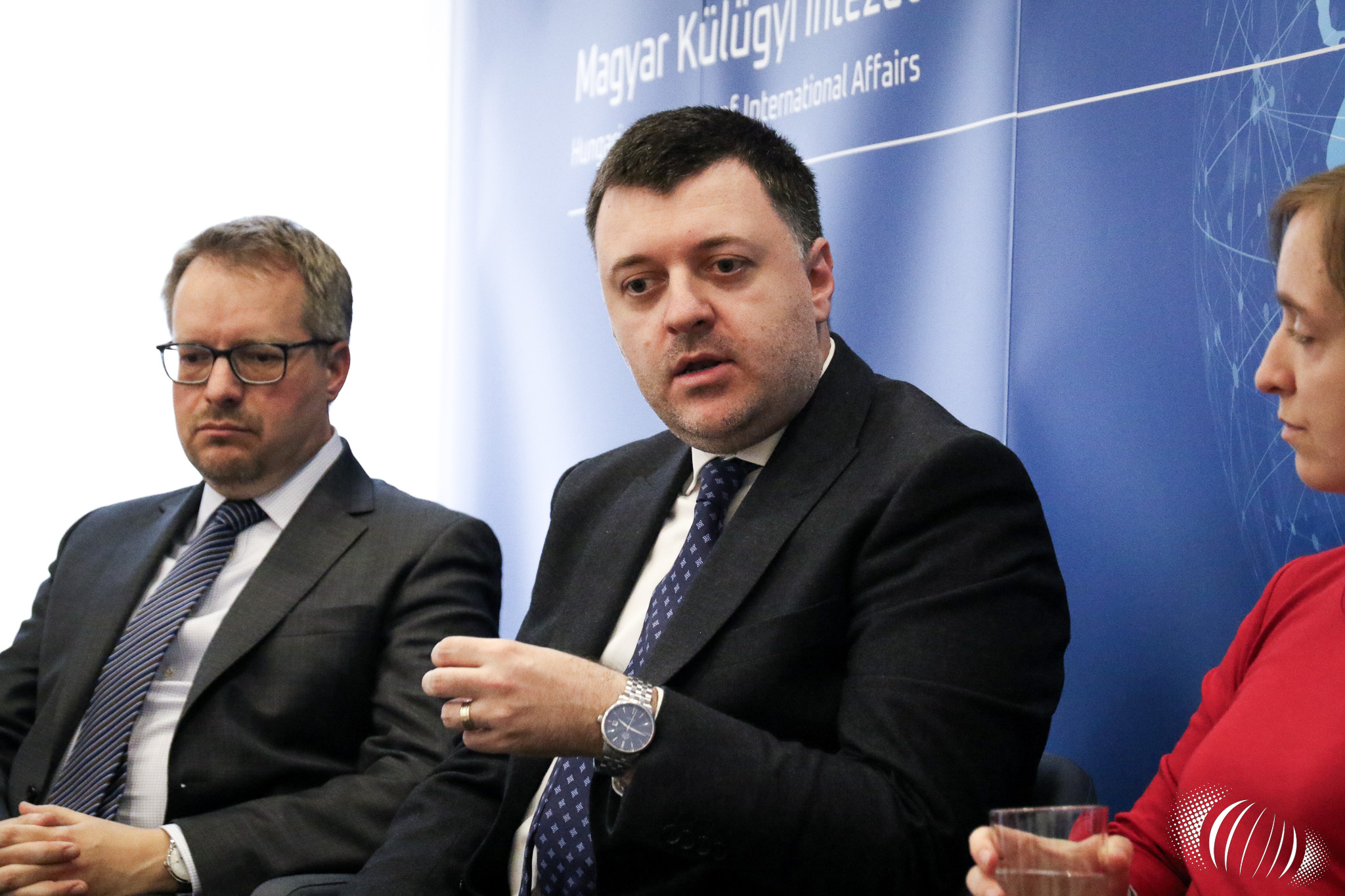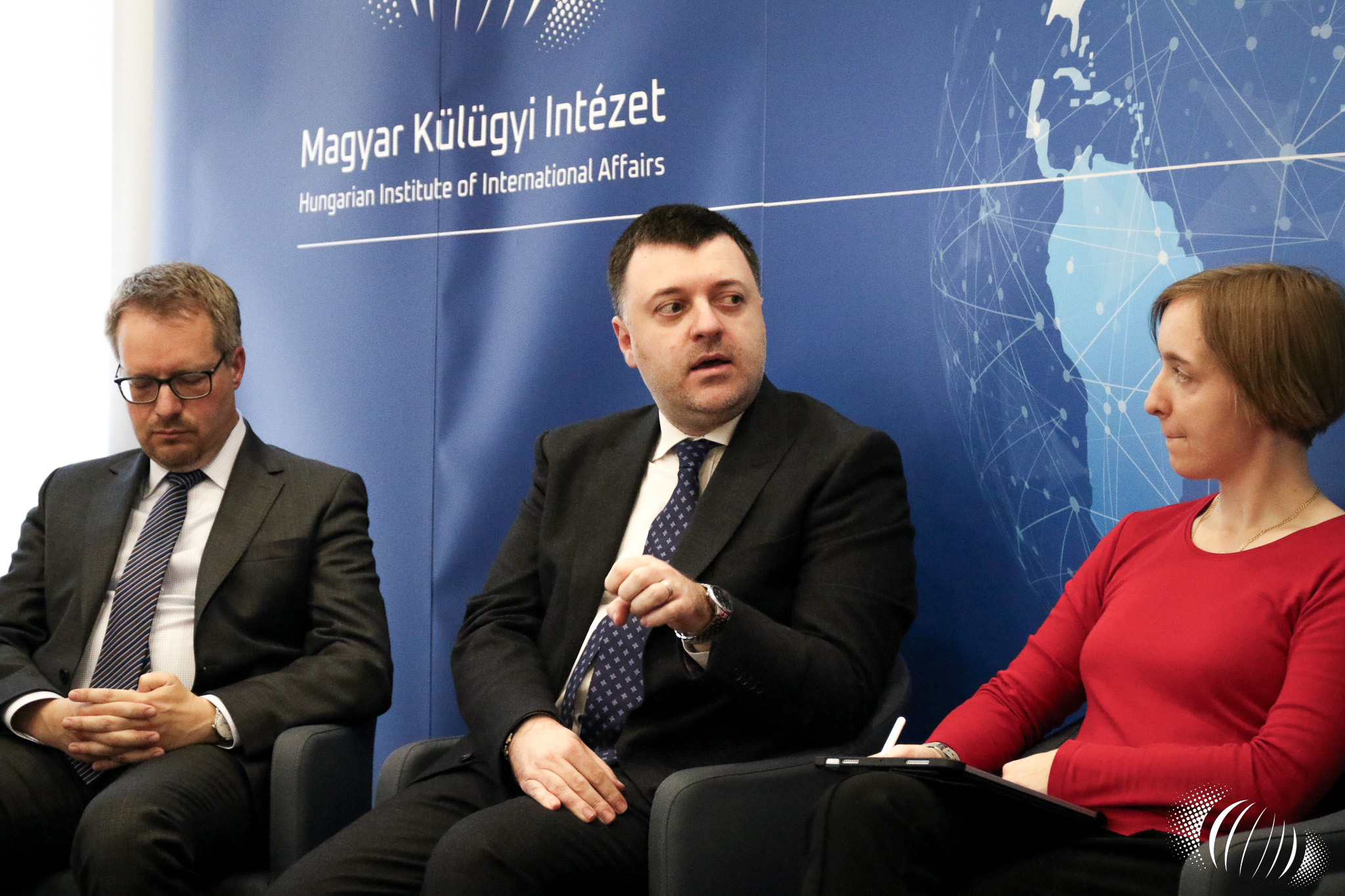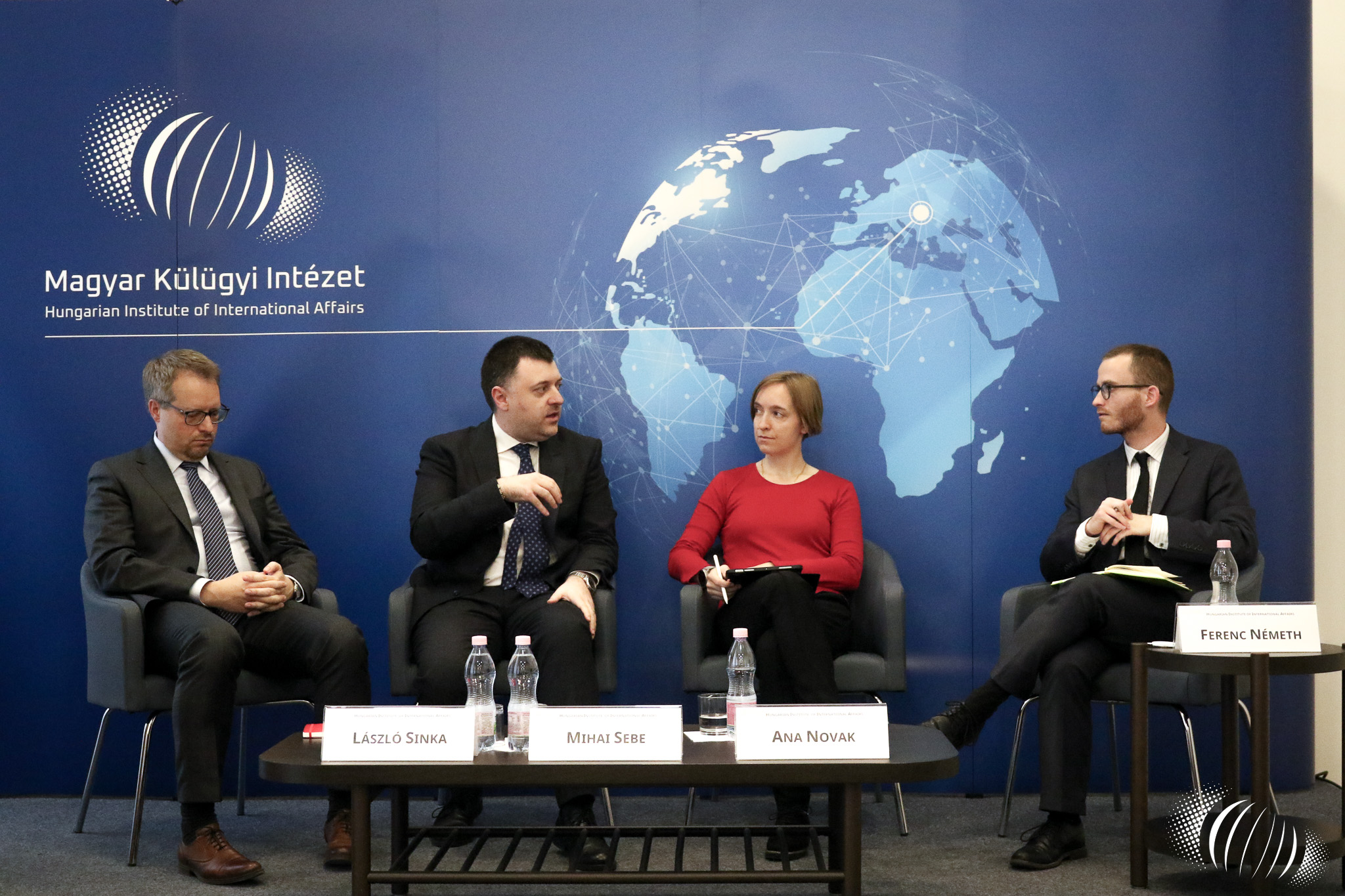Shared Neighbourhood, European Experience: The Western Balkans Files
The Hungarian Institute of International Affairs (HIIA) held its roundtable discussion entitled “Shared Neighbourhood, European Experience: The Western Balkans Files” on April 25, 2024. Panellists included Ana Novak, Project Manager of the Centre for European Perspective (CEP), Mihai Sebe, Head of the European Studies Unit at the European Institute of Romania, and Sinka László, Counsellor at the Ministry of European Affairs of Hungary. The discussion was moderated by Ferenc Németh, Research Fellow of HIIA.
In the first part of the discussion, panellists looked back, in a retrospective manner, over the decades of their experience in the European Union (EU), recalling what motivated their countries in pursuing EU membership. Ms Novak underlined that for Slovenia, looking to the EU as an escape route from the disintegrating Yugoslavia proved to be a great strategy. According to her, there was always a sense of Europeanism in Slovenian society and, as a result, the EU accession came as a natural choice. Integration into the Single Market was seen as a good option with relatively few obstacles, given that Slovenia was the most developed republic of former Yugoslavia. The trend in recent years has been that social support for EU membership remains high among Slovenes, however, turnout in European Parliamentary elections is markedly low.
According to Mr Sinka, Hungarians experienced accession to the EU as a kind of vindication. It confirmed the society’s notion that Hungarians are part of the family of European nations, to which they could finally return after decades of oppression. For a long time, Hungarians had suppressed the wish-driven idea of what could have been if the revolution of 1956 had fulfilled its desired political objectives. The year of 2004 legitimised the many sacrifices and heroic stands that had been made for rejoining the West.
Mr Sebe made a similar assessment of the conviction within Romanian society that it was finally possible to return to normalcy and leave behind the particularly repressive and despotic regime of the Ceaușescu era after 1989. In the 1990s, a consensus emerged among the Romanian political elites that EU membership was a matter for all, citizens alike. As a result, commitment of the Romanian society towards EU has been steadfast to this day, despite the emergence of Eurosceptic voices in the country over the last decade.
The second session of the roundtable discussion focused on the added value of the Western Balkans’ EU integration for Romania, Hungary and Slovenia, and the benefits of enlargement for the EU itself. According to Mr Sebe, enlargement sends out the right messages and demonstrates the credibility of the EU. It must not be allowed to create a grey zone in these countries’ direct neighbourhood and EU accession is also a good step towards an interconnected continent. Mr Sinka pointed out that EU member states also have a moral obligation to treat the Western Balkans as partners and to stabilise the region. In addition, enlargement would be a clear added value for Hungary in terms of security and economy. Ms Novak argued that Slovenia had a clear obligation to act as a bridge between the EU and the Western Balkans: they are tireless in their efforts to move the accession processes forward and to support the region from a kind of experienced, “elder sister” role.
The next part of the discussion revolved around the technical support that Hungary, Slovenia and Romania provide to the Western Balkans. Mr Sebe pointed out that Romania knows exactly what it is like to be at the negotiating table, and this experience can provide much needed support for the current candidate countries. He considered the strengthening of bilateral relations in the fields of economy and education to be essential, and stressed that once membership is obtained, it will become clear to all actors how much better off the Western Balkans is as EU members. Mr Sinka argued that keeping the communication corridors open is where Hungary is doing its most. According to him, “there is no need to recreate the wheel” as communication has always been a key aspect in the accession talks. He also stressed the importance of strengthening relations on a bilateral level as well as assisting in administrative matters. Ms Novak highlighted Slovenia’s lobbying efforts within the EU as an important practical help. The country is also committed to keeping civil servants and politicians in the region up to date with the internal processes of EU policy, and workshops and training courses are provided to this end.
In conclusion, panellists shared what they consider to be their most important lessons learned through EU membership. According to Mr Sebe cooperation, dedicated work, and implementation of the tasks and reforms set by the EU will pay off in the long run. Ms Novak stressed the importance of being proactive, prioritising reforms and consulting neighbours. Lastly, according to Mr Sinka, it is the clear definition of objectives and a well-defined vision that is essential for a successful accession. The Western Balkans must do its homework, not because it is compulsory, but because it serves its own development.

